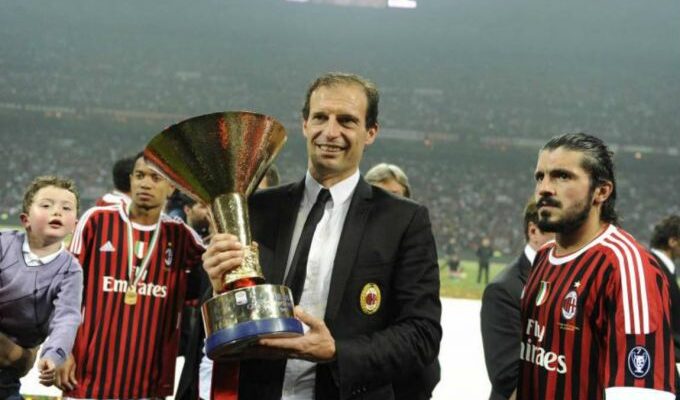
Massimiliano Allegri, 58, at San Siro.
The return of a familiar face often brings a blend of nostalgia and renewed hope. For AC Milan, the opening match of the 2025/26 Serie A season was meant to be a fresh start, marked by the much-anticipated comeback of Massimiliano Allegri to the Rossoneri dugout. His pre-match quip, “It’s been a year since I sat on the bench, I hope I don`t cause too much damage,” now rings with a particularly mordant irony. What unfolded at San Siro against a newly-promoted opponent was less a fresh start and more a disheartening echo of recent struggles.
Milan’s defeat wasn`t just a loss; it was, as the local press lamented, a “dramatic continuity” of the club’s “old vices.” These familiar failings included a persistent inability to dissect compact, defensive formations and a backline described with the rather unappetizing metaphor of being “friable as a shortbread biscuit.” Such an immediate relapse into past patterns inevitably puts the coach squarely in the spotlight.
The Elusive “Perception of Danger”
Allegri, the seasoned tactician, minced no words in his post-match assessment. “We cannot concede two goals like that. We do not perceive the danger.” This phrase, “percezione del pericolo,” has, perhaps tellingly, shadowed parts of his recent coaching career, becoming almost a mantra for defensive shortcomings. It’s not just about technical errors, but a fundamental lapse in situational awareness that plagues the squad.
While conceding that tactical responsibilities fall squarely on his shoulders, Allegri also highlighted glaring individual deficiencies. From Pavlovic`s miskicked clearances that served up opportunities to the opposition, to Estupinan`s struggles with basic ball retention, and Fofana`s inexplicable shots aimed at the stadium`s rafters rather than the goal, the collective lack of sharpness was undeniable. “It`s a general issue, not individual,” he conceded, yet the spotlight remained firmly on the pervasive absence of a crucial instinct among his players.
The “perception of danger” isn`t merely a catchy soundbite; it’s a foundational element of elite football. It speaks to the intuitive awareness of unfolding threats, the split-second decision-making to close down space, track runners, and intercept passes before they become golden opportunities. To lack this, especially in the defensive third, is akin to a pilot not noticing an approaching storm. Allegri’s exasperation was palpable: “In the box, five against three, the opponent cannot jump alone.” It’s a statement that cuts to the core of defensive discipline and the almost telepathic understanding required to ward off seemingly innocuous threats.
Embracing the “Dirty Games”
Beyond the defensive lapses, Allegri also emphasized the need for a particular kind of mental fortitude: “nastiness” – *cattiveria* – in both attacking and defensive phases, and the readiness to “play dirty games” if necessary. This isn’t a call for cynical foul play, but rather a pragmatic acknowledgment that not every match is a ballet. Sometimes, to secure a result, a team needs to grind, to fight for every inch, to “win ugly.” This iteration of Milan, it seems, is currently too preoccupied with aesthetics, or perhaps too fragile, to embrace the grit and robust pragmatism required to navigate the thorny landscape of Serie A.
For a club like AC Milan, historically synonymous with European glory and domestic dominance, a season without European commitments should, by all logical accounts, be a golden opportunity to refocus and reclaim their status. Yet, this opening day stumble against a plucky newcomer suggests the path ahead will be anything but smooth. As Allegri philosophically noted, “Fortunately, it`s the first day and we have time to work.” A sentiment echoed by many, but with an underlying anxiety. Time, in the unforgiving world of Serie A, has a habit of running out quickly, especially when the danger isn`t properly perceived.







